Those of us who are romantically-involved with that special someone (and really, even those of us sitting at home alone on a Friday night blogging) are well-aware that this Sunday is Saint Valentine’s Day. Window displays, television commercials, and grocery store aisles have been tinged with reds and pinks for weeks now — a constant reminder that we Americans are commercially-obligated to express our feelings in rations of flora and chocolate cubes. We here at the Criterion Cast have but one love above all others, and that love has surprised us today with an early Valentine’s present, leaving us open-jawed and squealing to our besties.
That love? The Criterion Collection. That early present? Their releases for May 2010.
Walkabout
Criterion # 10 Available on DVD and Blu-ray, May 18th, 2010.
In episodes past, we’ve made specific mention that WALKABOUT was to see its re-release sometime within the next year or two, but we have had no recent indication that it would be this soon. Criterion has given one of its first and finest releases a digital makeover, packed it with some fresh new supplements, and sealed it with a saucy re-envisioning of its original artwork. Consider it pre-ordered!
A young sister and brother are abandoned in the harsh Australian outback and must learn to exist in the natural world, without their usual comforts, in this hypnotic masterpiece from Nicolas Roeg. Along the way, they meet a young aborigine on his ‘walkabout,’ a rite of passage in which adolescent boys are initiated into manhood by journeying into the wilderness alone. Walkabout is a thrilling adventure as well as a provocative rumination on time and civilization.
Disc Features
- New, restored high-definition digital transfer, from a newly manufactured restoration element (with uncompressed monaural soundtrack on the Blu-ray edition)
- Audio commentary featuring director Nicolas Roeg and actress Jenny Agutter
- Video interviews with Agutter and actor Luc Roeg
- Gulpilil’”One Red Blood (2002), an hour-long documentary on the life and career of actor David Gulpilil
- Theatrical trailer
- PLUS: A booklet featuring an essay by author Paul Ryan
M
Criterion # 30 Available on DVD and Blu-ray, May 11th, 2010.
So, this Fritz Lang character is getting loads of attention as of late. Apparently, he made some pretty long movie called METROPOLIS that was just recently made even longer with some newly-uncovered footage (I mean, if you like films without sound, then I guess this is cool). Anyway, he spent so much time and effort on that film that he only had enough energy to give his first talkie one letter for its title.
But seriously, folks — as hinted at in Criterion’s New Years image, M is finally coming to Blu-ray! The release is complete with a “long-lost English-language version,” which I know nothing about, but by which I am wholly intrigued. This is another release I’ll be eagerly anticipating.
A simple, haunting musical phrase whistled offscreen tells us that a young girl will be killed. ‘Who Is the Murderer?’ pleads a nearby placard as serial killer Hans Beckert, played by Peter Lorre, closes in on little Elsie Beckmann. In his harrowing masterwork M, Fritz Lang merges trenchant social commentary with chilling suspense, creating a panorama of private madness and public hysteria that to this day remains the blueprint for the psychological thriller.
Disc Features
SPECIAL EDITION DOUBLE-DISC SET:
- Restored high-definition digital transfer (with uncompressed monaural soundtrack on the Blu-ray edition)
- The long-lost English-language version of M (on the Blu-ray edition)
- Audio commentary by German film scholars Anton Kaes, author of the BFI Film Classics volume on M, and Eric Rentschler, author of The Ministry of Illusion: Nazi Cinema and Its Afterlife
- Documentary on the physical history of M, from production to distribution to digital restoration
- Conversation with Fritz Lang, a 50-minute film by William Friedkin
- Claude Chabrol’s M le Maudit, a short film inspired by M, plus an interview with Chabrol by Pierre-Henri Gibert about Lang’s filmmaking techniques
- Classroom audiotapes of editor Paul Falkenberg discussing M and its history, set to clips from the film
- Video interview with Harold Nebenzal, the son of M producer Seymour Nebenzal
- Stills gallery, with behind-the-scenes photos, and production sketches by art director Emil Hasler
- Plus: A booklet featuring an essay by film critic Stanley Kauffmann, a 1963 interview with Lang, the script for a missing scene, and contemporaneous newspaper articles
Stagecoach
Criterion # 516 Available on DVD and Blu-ray, May 25th, 2010.
Among my favorite aspects of my Criterion preoccupation is finding common ground with friends and family in certain releases. My grandparents took my father to see STAGECOACH in the theater when he was very, very young (naturally, not in its original theatrical run), and he was very pleased to hear that it was coming to the Collection. This year, we’ve seen heavyweights such as James Mason (BIGGER THAN LIFE) and Marlon Brando (THE FUGITIVE KIND) make their debuts in the catalog, and now we have a third in John Wayne. Perhaps you’ve heard of him?
This is where it all started. John Ford’s smash hit and enduring masterpiece Stagecoach revolutionized the western, elevating it from B movie to the A-list. The quintessential tale of a group of strangers thrown together into extraordinary circumstances’”traveling a dangerous route from Arizona to New Mexico’”Stagecoach features outstanding performances from Hollywood stalwarts Claire Trevor, John Carradine, Thomas Mitchell, and, of course, John Wayne, in his first starring role for Ford, as the daredevil outlaw the Ringo Kid. Superbly shot and tightly edited, Stagecoach (Ford’s first trip to Monument Valley) is Hollywood storytelling at its finest.
Disc Features
SPECIAL EDITION FEATURES:
- New, restored high-definition digital transfer, with uncompressed monaural soundtrack on the Blu-ray edition
- Audio commentary by noted western authority Jim Kitses
- Bucking Broadway (1917), a fifty-four-minute silent western by John Ford, with new music by Donald Sosin
- Extensive video interview with Ford from 1968
- New video interview with Dan Ford, biographer and grandson of the director, about Ford’s home movies
- New video interview with filmmaker Peter Bogdanovich
- New video essay by writer Tag Gallagher
- New video feature about Monument Valley
- New video interview with stunt coordinator Vic Armstrong about Stagecoach‘s stuntman Yakima Canutt
- Radio dramatization of Stagecoach from 1949
- Theatrical trailer
- PLUS: A booklet featuring an essay by David Cairns and the short story that inspired the film
By Brakhage Volume 2
Criterion # 517 Available on DVD and Blu-ray, May 25th, 2010.
Alas, every rose has its thorn. To say I am not the world’s biggest Stan Brakhage fan would be a bit of an understatement. As painstaking as it was for me to drudge through The four hours of By Brakhage: An Anthology (Spine #184, now deemed “Volume One”), I can now look forward to over seven additional hours in Volume Two.
I don’t mean to discourage his work outright, though. It definitely establishes its merit as an avant-garde challenging of film paradigm in its unorthodox structures and ambiguous (if not absent) purpose, and with the exception of the perverse footage of crowning babies and autopsies, it can create a funky atmosphere if muted and played in the background at your next social gathering. Criterion should not be sleighted, however, for the apparent love and attention they have given to these releases, even packaging both volumes together in a definitive Blu-ray release (with some rather nice concept art).
Working outside the mainstream, Stan Brakhage made nearly four hundred films. Challenging all taboos in his exploration of ‘birth, sex, death, and the search for God,’ Brakhage turned his camera on explicit lovemaking, childbirth, even autopsy. Many of his most famous works pursue the nature of vision itself and transcend the act of filming. Some, including the legendary Mothlight, were made without using a camera at all. Instead, Brakhage pioneered the art of making images directly on film’”drawing, painting, and scratching it by hand. His visionary style has influenced everything from cartoons and television commercials to MTV music videos and the work of such mainstream moviemakers as Martin Scorsese, David Fincher, and Oliver Stone. With these two volumes, we present the definitive Brakhage collection’”fifty-six of his works in high-definition digital transfers, spanning his almost fifty-year career.
by Brakhage: An Anthology, Volume One
Working completely outside the mainstream, Stan Brakhage has made nearly four hundred films over the past half century. Challenging all taboos in his exploration of ‘birth, sex, death, and the search for God,’ Brakhage has turned his camera on explicit lovemaking, childbirth, even actual autopsy.
By Brakhage: An Anthology, Volume Two
In our first volume of By Brakhage, we brought twenty-six astonishing works by the avant-garde film pioneer Stan Brakhage to home video. In this second installment, we are proud to present thirty more of Brakhage’s innovative creations, from 1950s films to his final work, from 2003.
BLU-RAY SPECIAL EDITION THREE-DISC SET FEATURES:
VOLUME ONE (ONE DISC)
- New high-definition digital transfers of all twenty-six films, with uncompressed monaural soundtracks
- Brakhage on Brakhage, a collection of video encounters with the filmmaker
- Audio remarks on selected films by Stan Brakhage
VOLUME TWO (TWO DISCS)
- New high-definition digital transfers of thirty films, with uncompressed monaural soundtracks
- Brakhage on Brakhage, a collection of video encounters with the filmmaker
- For Stan, a short film by Marilyn Brakhage
- Excerpts from a 1990 interview with Brakhage
- Footage from Brakhage’s salon at the University of Colorado
- Audio recordings of two lectures by Brakhage
- PLUS: A booklet featuring a foreword and program notes by Marilyn Brakhage, as well as write-ups of the films and an essay by Brakhage expert Fred Camper
SPECIAL EDITION THREE-DVD SET:
- New high-definition digital transfers of all thirty films
- Brakhage on Brakhage, a collection of video encounters with the filmmaker
- For Stan, a short film by Marilyn Brakhage
- Excerpts from a 1990 interview with Brakhage
- Footage from Brakhage’s salon at the University of Colorado
- Audio recordings of two lectures by Brakhage
- PLUS: A booklet featuring film program notes by Marilyn Brakhage and write-ups of the films by Brakhage expert Fred Camper
Representing the more, er, carnal aspects of Valentine tradition, we have five films by Nagisa Oshima making up Eclipse Volume 21. If his Criterion selections IN THE REALM OF THE SENSES and EMPIRE OF PASSION are any indication of the overall air of his body of work, these films will no doubt be filled to overflowing with tons and tons and tons of graphic, unbridled sex. Happy viewing!
Often called the Godard of the East, Japanese director Nagisa Oshima was one of the most provocative film artists of the twentieth century, and his works challenged and shocked the cinematic world for decades. Following his rise to prominence at Shochiku, Oshima struck out to form his own production company, Sozosha, in 1961. That move ushered in the prolific period of his career that gave birth to the five films collected here. Unsurprisingly, this studio renegade was fascinated by stories of outsiders’”serial killers, rabid hedonists, and stowaway misfits are just some of the social castoffs you’ll meet in these audacious, cerebral entries in the New Wave surge that made Japan a hub of truly daredevil moviemaking.
Available on May 18th, 2010 on DVD, the Collector’s set includes:
Pleasures of the Flesh
1965
A corrupt businessman blackmails a lovelorn murderer, Atsushi, into watching over his suitcase full of embezzled cash while he serves a jail sentence. Rather than wait for the man to retrieve his money, however, Atsushi decides to spend it all in one libidinous rush.
Violence at Noon
1966
Containing more than two thousand cuts and a wealth of inventive widescreen compositions, this coolly fragmented character study is a mesmerizing investigation of criminality and social decay.
Sing a Song of Sex
1967
Four sexually hungry high school students prepare for their university entrance exams in Oshima’s hypnotic, free-form depiction of generational political apathy, featuring stunning color cinematography.
Japanese Summer: Double Suicide
1967
A sex-obsessed young woman, a suicidal young man she meets on the street, a gun-crazy wannabe gangster’”these are just three of the irrational, oddball anarchists trapped in an underground hideaway in Oshima’s devilish, absurdist film.
Three Resurrected Drunkards
1968
A trio of bumbling young men frolic at the beach. While they swim, their clothes are stolen and replaced with new outfits. Having donned these, they are mistaken for undocumented Koreans and end up on the run from comically outraged authorities.




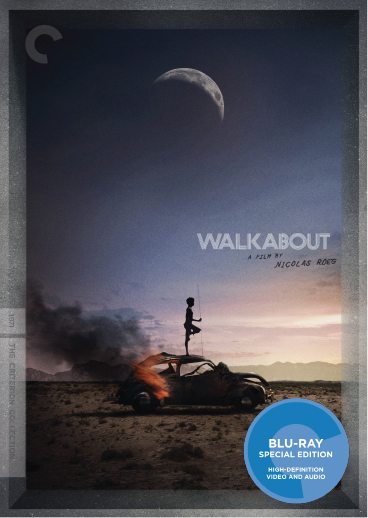

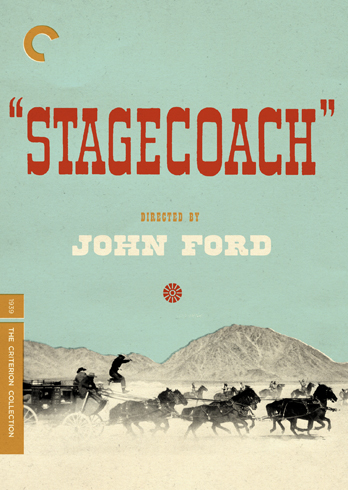


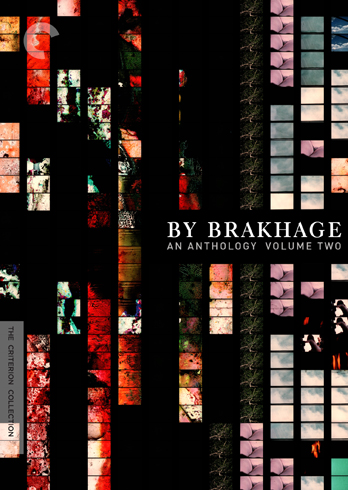


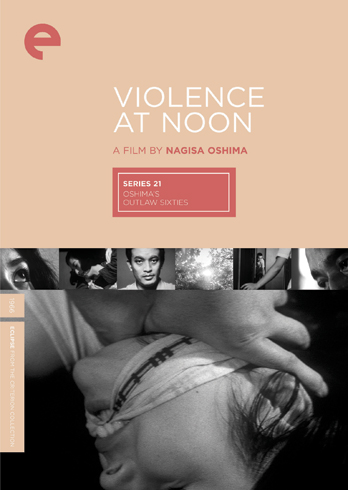



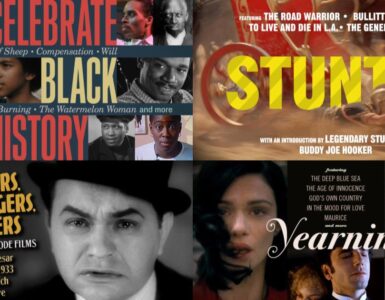
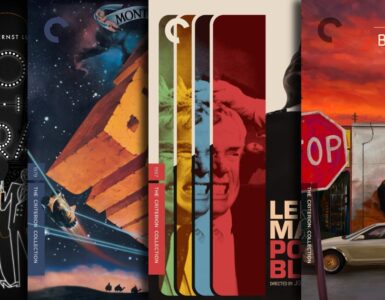
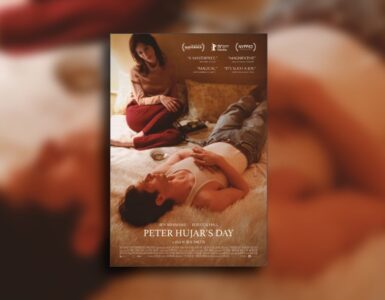

Will you guys weigh into the “controversy” that's developing around Spine #518? As it currently stands, it looks like one will have to buy the 3-disc Bluray set of Brakhage Vol. 1 & 2 in order to get that number in their collection. Criterion doesn't list a #518 Brakhage box in their DVD section. Will there be an outcry from the completists similar to that which forced them to release Howards End as a regular DVD when their original plan was just to issue the Bluray?
Haha I definitely bitched about this on our Paris, Texas podcast, which should be out by Monday. Rudie and Ryan didn't seem to share my anger.
I'll be cheering you on when I listen then. Rudie and Ryan just don't get it! lol Now really, isn't Rudie the guy who complained about having to switch discs for a long two-part movie? I guess we all have our own individualized strain of OCD…
I feel like in this specific case, you guys are being a bit unreasonable. Both volumes of the short films are available on DVD, with a Criterion Collection logo, which functions the same as watching both volumes on Blu-ray. In the case of Howards End, they were only releasing the Blu-ray, assuming that people could just watch the Merchant Ivory Edition without complaint. Obviously people complained and here we are.
I know it's a little irrelevant, but Travis, you hated Volume 1, I don't know why you would even want to put yourself through another rewatch.
Also Travis, you were the one who didn't have a problem with Criterion numbering a box as well as the films within.
If you're a big-time John Ford fan, and you already have the 2006 2-disc Warner pressing of Stagecoach (now OOP), you might want to hang on to it; I'm getting the Criterion Blu-Ray and keeping the Warner DVD, which has a different commentary (by Scott Eyman, a Ford biographer), an 84-minute documentary about Ford and John Wayne, a 30-minute documentary about Stagecoach, and a completely different radio play from 1946 with Randolph Scott and Stagecoach star Claire Trevor.
I'm thrilled that Stagecoach is coming to Criterion; not only is it good to get more John Ford, one of our greatest filmmakers, into the collection, but the Western genre in general seems under-represented — there's The Furies, and a couple of the pictures in the Samuel Fuller Eclipse set, and Magnificent Obsession. (Kidding.) I would encourage the Criterion people to show more love to Westerns!
Unreasonable? UNREASONABLE!?!? I hardly think so. All Criterion has to do is publish a box that houses the DVDs in Spine 518 and the problem is solved. I predict that when all the dust settles they will buckle under the pressure and release the combined DVD set as #518. I won't speak for Travis, of course, but I think they made a mistake way back when in assigning separate #s to the boxes – but now that they have this track record, they're obliged to follow through on it, or at the very least publish a definitive statement indicating their new way of doing things that acknowledges their abandonment of the core DVD audience upon which all their current success now rests. :)
Oh, I am definitely being unreasonable. I'll watch Volume 2, give myself an honorary 518th tally, and no one will come at me with pitchforks.
Is there a reason People prefer a DVD version over a Blu-ray version of a film aside from perhaps not owning a Blu-ray player and HDTV?
Is there a reason People prefer a DVD version over a Blu-ray version of a film aside from perhaps not owning a Blu-ray player and HDTV?
years ago i owned a copy of kurosawa’s “high and low” that had the optional english-dubbed soundtrack as well as subtitles. where can i purchase a VHS or DVD copy with the english dubbing?